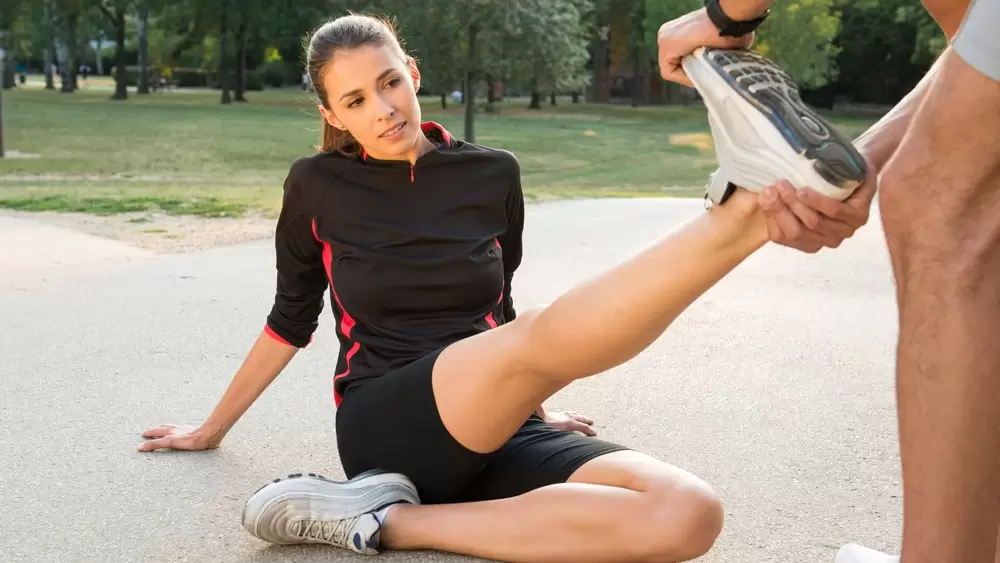
Numbness in Feet and Hands After Workouts? See the Symptoms of Pinched Nerves
Have you ever experienced numbness in your hands and feet even hours after your gym workouts? Even if your answer is no, it’s better to pay attention to today’s article. Because this information could save you from an injury. With the increasing number of people in gyms, it has become more challenging for instructors to
Have you ever experienced numbness in your hands and feet even hours after your gym workouts? Even if your answer is no, it’s better to pay attention to today’s article. Because this information could save you from an injury.
With the increasing number of people in gyms, it has become more challenging for instructors to pay attention to everyone. And the result is that more and more injuries and muscle problems are arising.
Today, we’ll explain what “pinched nerves” are, how to avoid them, what the symptoms are, and also whether you should be concerned when a limb goes numb.
And the best part: it will be a super quick article, in less than 5 minutes you’ll have read everything. Okay? Let’s get started!
Understanding Numbness in Hands and Feet After Workouts
Numbness in the hands and feet after a workout is a sensation that many athletes and fitness enthusiasts may experience at some point. It can range from a mild tingling sensation to a feeling of “pins and needles.” In more severe cases, it can lead to complete lack of sensation.
It’s important to understand that experiencing this phenomenon can be normal, especially after intense workouts. It’s the frequent recurrence that could indicate a problem.
According to a study published in the Journal of Sports Sciences, numbness in the hands and feet can result from excessive pressure on peripheral nerves during physical exercise. Since these nerves are responsible for transmitting signals of pain, sensation, and body temperature to the brain.
So, during a workout, especially one involving weight lifting or high-intensity exercises, these nerves can be compressed, resulting in temporary numbness in the extremities.
Pinched Nerves: When Numbness Isn’t Normal!
Pinched nerves, also known as compression neuropathy, are a medical condition that occurs when nerves are compressed or irritated. This phenomenon can cause pain, tingling, and in severe cases, numbness.
When this happens in the hands or feet, it’s often the result of improper postures, repetitive movements, or strenuous physical activities.
One of the most common causes is carpal tunnel syndrome. This condition occurs when the median nerve, which extends from the forearm to the hand, is compressed in the carpal tunnel, a narrow channel in the wrist. It’s common in people who perform repetitive hand movements, such as typing or lifting weights.
What’s the difference between the normal condition and the serious problem? Well, it’s primarily the progression of symptoms. Tingling caused by fatigue will gradually improve within up to 48 hours. On the other hand, pinched nerves could take months to return to a normal state, or in some cases, they might not recover without medical intervention.
Therefore, it’s important to assess whether your symptoms are improving, remaining static, or even worsening. The latter indicates a more serious issue.
Effort vs. Preparedness: How to Avoid Numb Nerves?
Improve Technique
Ensuring that you’re performing exercises correctly can help prevent nerve compression. This includes avoiding repetitive movements and overloading, maintaining proper posture, and using appropriate equipment.
Strengthen Muscles and Joints
Strengthening the muscles around areas that could be affected by nerve compression can help protect the nerve from being compressed. For example, the wrist and forearm muscles can help prevent carpal tunnel syndrome.
Proper Warm-up and Stretching
Proper warm-up and stretching before and after workouts can increase blood circulation and reduce muscle tension, preventing nerve compression.
Rest and Recovery
If you’re experiencing numbness in your hands and feet after a workout, it’s important to give your body time to recover. This might involve reducing workout intensity, avoiding movements that cause pain or numbness, and allowing your body to recover adequately between workouts.
Physical Therapy
A physical therapist can help alleviate pressure on compressed nerves, improve mobility, and strengthen muscles around the affected nerves.
Medication and/or Surgery
In severe cases, pain relief medication or even surgery may be necessary to treat pinched nerves.
Remember that persistent numbness in your hands and feet after a workout should be evaluated by a healthcare professional to determine the cause and the best treatment. Prevention and early treatment are always the best options to avoid long-term complications, but you should always ensure that your health is being monitored by a responsible professional.
Liked today’s publication? Then keep following our Blog and also our new section entirely focused on Sustainability.
Sooro Renner – Nutrition that produces results.